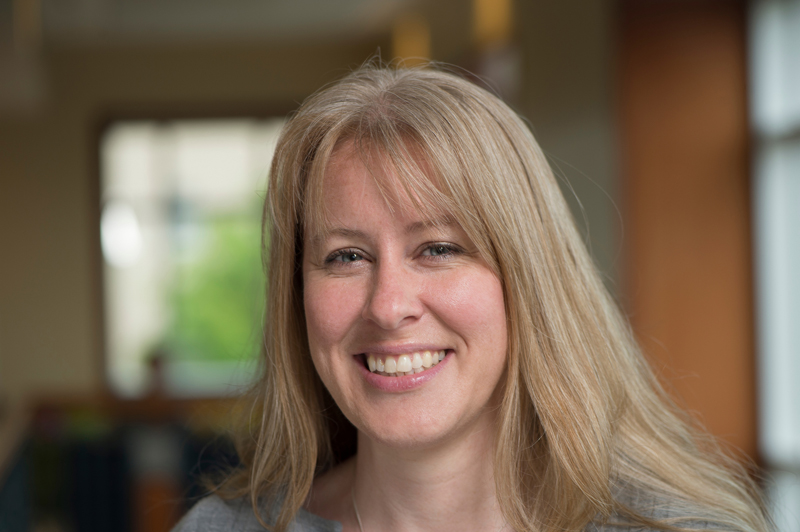Today, sitting, reeling in the aftermath of the murders of George Floyd, Breonna Taylor, and Ahmed Aubrey and the danger presented to Christian Cooper, my husband shared a video. It was of the most haunting and beautiful voice of Keedron Bryant, a 12-year-old gospel artist. He sang the following:
“I’m a young Black man,
Doing all that I can to stand
Oh! But, when I look around and I see what’s being done to my kind,
Every day, I’m being hunted as prey
My people don’t want no trouble,
We’ve had enough struggles,
I just wanna live.
God protect me,
I just wanna live,
I just wanna live.”
I had been writing a blog as part of my work as a member of the Health Equity Faculty Interest Group here at the School of Nursing, and struggling with how to capture my thoughts and share my research. The raw pain in that young man’s face and voice clicked it into place. Polished writing be damned, I will write my own raw and painful introduction into the world of Health Equities research.
I am still pretty new the U.S., but I’m already shattered to my core at the misaligned treatment and vast imbalance of care experienced by White and Black populations, and the blaming, brutal manner their subsequent health patterns and disparities are often presented and taught about.
For context, I am a White, British woman, a proud South East Londoner. I am a person from a country with its own horrific history, and a present I cannot even begin to wrap my head around. I am painfully aware that I write this from a place of privilege and that my observations are not unique. But it is vital that they keep being spoken. With increasing volume. Or else, and I do not exaggerate, the normalization of racism becomes complete and humanity is lost.
Many groups are affected by health inequities. I have my own experiences. I am not from a medical or academic family; one of my sisters and I were the first generation to go to college. I am definitely the first to earn a PhD. I lived with several disabilities for over 20 years, at one stage having to leave clinical nursing completely due to poor health. I frequently received poor medical treatment and my family and I were relatively clueless about advocating for our needs. A saving grace was being in a nationalised health system. This meant that bouncing from service to service for years before having proper diagnoses did not leave us bankrupt. I am also dyslexic, something I only learned during my doctoral studies. This learning disability caused many additional challenges over the years.
I say all this to highlight that my reasons for focusing now on racial inequity over any other group, are intentional and deliberate. From early on in my clinical and research training I have been encouraged to focus first on people most at risk, people that are most vulnerable. If you work with people, learn from people, help bring about change with and for people – then not only does their situation improve, there is also a ripple effect of benefit to others (a win-win from a nursing perspective). This has primarily been in palliative care, my area of clinical and research expertise. I use a form of participatory action research called experience-based co-design to try to help improve experiences of care for those providing and receiving it. And right now, when I look around, I cannot see a group that is more at risk, more overlooked, more dismissed and more violated than Black people. Particularly in the U.S.
My research into palliative care among Black populations is in its early stages and I am very much a novice learner. In fact, I recently came across the Pyramid of White Supremacy I was horrified to see that I am guilty of some of the ‘socially acceptable covert white supremacy’ behaviours.

I do not believe I am alone in the temptation to hide from them, explain them away, argue to try and prove you’re a good person. And that response is literally on the pyramid. I work with qualitative research methods and a strength in qualitative work is in recognising and responding to your own biases, to limit their impact to the research. So as I start my research into health inequities in palliative care among Black populations, I have to recognise and address where I could ignore, overlook, and imprint my interpretation of people’s experiences onto their stories. However, I also hope that by sharing where I have been at fault, that it might help the conversation to continue, it might help other people to look more closely at themselves and have those horribly hard conversations. Because none of us are free of this, racism towards Black people is too pervasive and a deeply embedded mind-set across the world.
For myself, I am guilty of paternalism. I used to believe we were ‘post-racial’ (especially before I moved to the U.S.). That racism happened only in small, isolated incidents and that no one I would be friends with could possibly think or say such things. I had selective deafness when they cracked questionable jokes. I have denied people’s experiences of racism in that passive way which now grates to my bones, such as saying ‘oh I’m sure they didn’t mean it that way, they must have meant XYZ’. I have responded with defensiveness if I felt I might possibly be accused (read as ‘someone observing’) of responses that put blame back on the person’s experiences or trying to justify or defend. My good intentions have frequently been what I have placed above the impact of something I said. And I have said ‘no I can’t bear to watch that video’ as another Black person suffered, without realising that I wasn’t just not watching, I also wasn’t going away and doing or saying something about it, something to help. Instead, I turned my face away because the suffering was so bad I couldn’t look at it, and I was able to then not think about it.
I am aware that if my husband were not an African American/Puerto Rican man, I would still be doing those things to a greater degree. This is a daily check I have to make – when it is not your life at risk it is so much easier to be complacent. It would likely have taken me a lot longer to learn had I not seen him first-hand experience treatment that I never would, and which leaves me speechless and devastated (let alone the impact it has on him!). I have rapidly learned a new fear that he might not come home because someone could take offense at his existence. I have seen people change towards me when they learn we are married. I have learned to mistrust people who look like me when we first meet in case they will pose a risk to his safety. My ears prick up when people discuss policies and the videos of Black people being brutalised in the streets, and I learn who to stay away from, who not to share with.
This is my first blog about health equities and it is not a pretty one. But this is why I am focusing my research on the experiences of Black people. Not because I have answers or believe that I as a White woman, personally, can fix or change anything except myself. No, I am focusing on serving and working with Black populations because I recognise that there is an innate and deeply rooted injustice, and I don’t think I can live with myself if I don’t do something. And because for some reason I have been privileged to have ‘a chair at the table’. So for now, in these early stages I hope to use participatory approaches with the hope that they will enable others to join the table. But I have two final thoughts:
- If I truly value change in the systems we live in, then I must be ready to not just add chairs to the table, but also be ready to give up my chair to someone else.
- An increasing belief that rather than cramming more people round a very cruelly and deliberately crafted table, it might be time to co-design something new
This blog is a part of the “Dialogues in Health Equity” series by the Health Equity Faculty Interest Group. They are committed to decreasing health disparities experienced by local and global communities by promoting social justice and health equity through nursing practice, research, education, and service.
Read more:
ABOUT THE AUTHOR

Rebecca Wright, PhD, BSc (HONS) is an assistant professor at the Johns Hopkins School of Nursing. A palliative care specialist, her research is based on the clinical challenges she has witnessed among patients, families, and emergency staff. Dr. Wright’s work continues on improving the delivery and experiences of palliative and end-of-life care, with a focus on older people, family caregivers, emergency care, and dementia.
